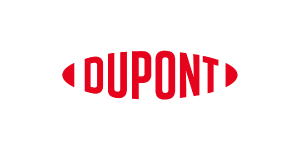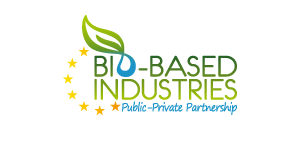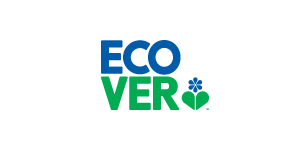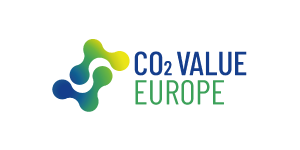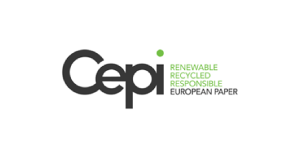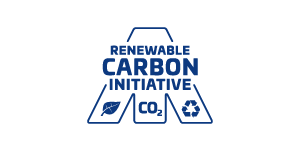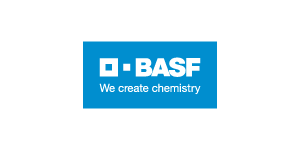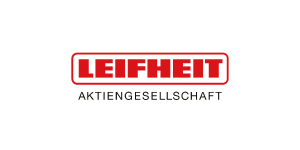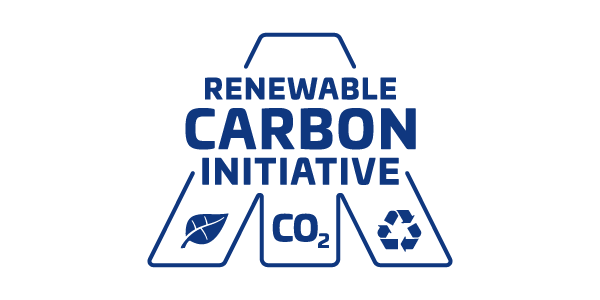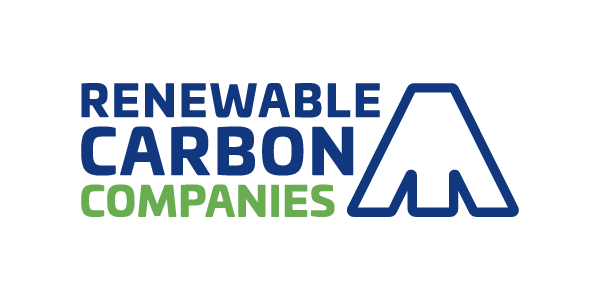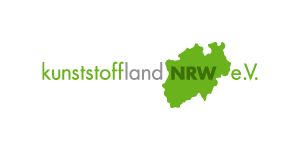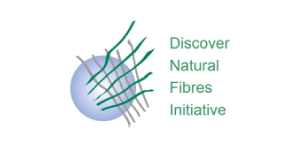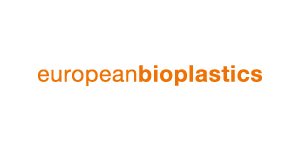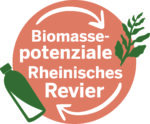References
With over 30 years of experience, nova-Institute is proud of its successful track record of science-based consultancy for numerous national and international clients from the public and private sector. With a strong foundation in the chemical and materials sector, our expertise now spans a wide range of industries. In particular, as the executive office of the Renewable Carbon Initiative, nova demonstrates the strength of a collaborative network of over 60 business partners, all committed to envisioning a future powered by renewable carbon. Explore our project list for a glimpse into some of the most notable milestones achieved through our research and consultancy assignments.
HICCUPS – Highly Innovative technology demonstration for bio-based CO2 Capture and Utilization for production of bulk plastics applications
From September 2023 to August 2027 the HICCUPS project will propose a resource-efficient solution to convert biogenic CO2 emissions from wastewater treatment plants into bio-based polymers for the packaging industry. The aim of the project is to develop an efficient process to electrochemically convert CO2 emissions from water treatment sludge into monomers and polymerise them to produce the bio-b …
PYSOLO – PYrolysis of biomass by concentrated SOLar pOwer
In July 2023, the Horizon Europe Project PYSOLO (PYrolysis of biomass by concentrated SOLar pOwer) was officially launched and will be up and running for the next four years. The project aims to prepare the ground for a novel game-changing and fully renewable process combining concentrated solar power and biomass pyrolysis.The EU’s chemical industry urgently needs to abstain from fossil resources …
Biomassepotenziale im Rheinischen Revier
Von Juni 2023 bis März 2024 wird das nova-Institut eine Studie für ein Projekt des Landesamts für Natur, Umwelt und Verbraucherschutz Nordrhein-Westfalen durchführen. Das Projekt soll den Strukturwandel im Rheinischen Revier unterstützen. Das nova-Institut wird untersuchen, welche Biomassepotenziale aus der Land- und Ernährungswirtschaft für eine nachhaltige Nutzung im Revier zur Verfügung stehen …
3-CO – Concise Consumer Communication through Robust Labels for Bio-based Systems
3-CO is a 36-month interdisciplinary project whose consortium combines expertise from different sectors, i.e., the scientific community, certification associations, digital solution services, and technology providers for the bio-based industry. A core interest of 3-CO lies in the consumers’ decision making process that can be channeled through concise consumer communication. Consumers and their pu …
BioReCer – Biological Resources Certifications Schemes
BioReCer is a three-year interdisciplinary collaborative project, including 16 partners from science and industry. BioReCer aims to assess and complement current certification schemes for biological resources according to the EU sustainability goals to enhance bio-based circular systems. This will be achieved by including new criteria that align with EU taxonomy and EU corporate due diligence regu …
STAR4BBS – Sustainabilitiy Transition Assessment Rules for Bio-Based Systems
STAR4BBS is a three-year multidisciplinary and multi-actor collaborative project, involving seven partners, three associated partners and one linked third party. The overall aim of STAR4BBS is to maximize the potential of Sustainability Certification Schemes (SCS) and labels to support a successful transition to sustainable bio-based economy. At the core of the STAR4BBS project is the development …
Bio4MatPro BL1-2 – BioCapa
Das Ziel von Bio-Capa ist die Entwicklung eines nachhaltigen, effizienten und ökonomisch attraktiven Produktionsverfahrens für die im Multi-10.000 Tonnenmaßstab benötigte Industriechemikalie Caprolacton, das im Gegensatz zu heute petrochemischen Quellen auf dem Einsatz nachwachsender Rohstoffe basiert. Für die Herstellung von Caprolacton aus nachwachsenden Rohstoffen wurden drei interessante Synth …
WaterProof – urban WAste and water Treatment Emission Reduction by utilizing CO2 for the PROduction Of Formate derived chemicals
In view of the increasing scarcity of fossil carbon feedstock and a parallel increase in carbon demand, science and industry are faced with the challenge to urgently close any possible carbon loop. Besides diminishing resources, also the amount of waste is massively increasing, with e.g. many of the products we use in our everyday lives like cleaning products, cosmetics, and their packaging materi …
PERFECOAT – High Performance Bio-based Functional Coatings for Wood and Decorative Applications
Achieving a climate-neutral Europe by 2050 requires the replacement of fossil-based material with bio-based material on a broad basis. Today, ca. 900 kt/y paints and coatings are produced in Europe, with more than 80% still being from fossil resources. Wood and decorative coatings represent a large market, accounting for more than half of that volume. The goal of the PERFECOAT project is to develo …
Tech4Biowaste – A dynamic database of relevant technologies of biowaste utilisation
Biowaste is a key waste stream in Europe with a high potential for contributing to a more circular economy. The Tech4Biowaste project aims to provide the bio-based industry with a complete overview of existing and emerging technologies with a Technology Readiness Level (TRL) 4 and higher for biowaste utilisation and valorisation. The technology database will provide a platform for technology provi …
DuroBast – Dauerhafte und ressourcenschonende Composit-Strukturbauteile auf Basis neuartig vorbehandelter und verarbeiteter Bastfasern
Wirtschaftlichkeitsbetrachtung des Herstellprozesses neuartiger naturfaserverstärkter, feuchtebeständiger Composit-Strukturbauteile (Teilvorhaben 6 innerhalb des Verbundvorhabens) Die nova-Institut GmbH evaluiert in Teilaufgabe 9 entlang der Wertschöpfungskette sowohl die verwendeten Rohstoffe als auch die zum Einsatz kommenden Verfahren hinsichtlich Preis, Verfügbarkeit und Übertragbarkeit auf gr …
CHAMPION: Circular High-performance Aza-Michael Polymers as Innovative materials Originating from Nature
Polymers are an essential element of many aspects of modern life. However, many rely on non-renewable feedstocks and present a range of environmental issues, both during production and once they reach the end-of-life phase. The objective of the CHAMPION project is to replace these existing materials with bio-based polymers – based on the aza-Michael addition reaction – that are suitable for high-p …
BioSinn – Steckbriefe sinnvoll biologisch abbaubarer Produkte
Wann ergibt biologischer Abbau ökologisch Sinn? Gibt es für solche Anwendungen bereits die geeigneten Materialien? Wie sind die marktwirtschaftlichen Rahmenbedingungen? Diese und weitere Fragen wird das neu gestartete Projekt „Steckbriefe sinnvoller biologisch abbaubarer Produkte“ – kurz „BioSinn“ – beantworten. Gemeinsam mit dem Institut für Kunststofftechnik der Univer-sität Stuttgart untersucht …
EvaChem – Verbundvorhaben: Entwicklung eines praktikablen Multikriterien-Systems zur Evaluierung der Chemikalienproduktion
Das BMEL-geförderte Verbundprojekt EvaChem befasst sich mit der Entwicklung eines praktikablen Multikriterien-Systems zur Evaluierung der Chemikalienproduktion (EvaChem), um die vorteilhaftesten Kombinationen aus Rohstoff (fossile Ressourcen, CO2, erste und zweite Generation Biomasse), Syntheseweg und Zielmolekül effizient zu identifizieren. KMUs und auch Wissenschaftler können oft das Potenzial, …
iMulch — Untersuchung des Einflusses von Polymeren auf ein terrestrisches Ökosystem am Beispiel von in der Landwirtschaft eingesetzten Mulchfolien
Das Projekt »iMulch« wird mit Mitteln aus dem Europäischen Fonds für regionale Entwicklung (EFRE) »Investitionen in Wachstum und Beschäftigung« gefördert. Mit der global stetig steigenden Kunststoffproduktion stehen Themen wie »Mikroplastik« und »Kunststoffe in der Umwelt« im Fokus von Diskussionen und werden relevanter. Während Vorkommen, Verbreitung und die Wirkungen von Kunststoffen in l …
WoodCircus – Underpinning the vital role of the forest-based sector in the Circular Bio-Economy
WoodCircus project’s main goal is to promote wood-based value chains as a key part of a circular bioeconomy in Europe. This goal is pursued by studying, assessing and highlighting efficiency of wood-based value chains in the wood construction sector. It englobes the mobilisation and first transformation of wood, building and construction activities, production side streams, reuse and recycling asp …
BioMonitor
Over the last twenty years, EU policy makers have prioritized the expansion of bio-based value chains through various EU policy initiatives and research programmes. As a consequence to the growing popularity of the bioeconomy in Europe, its information and statistics are lagging behind in various ways. These include the lack of comprehensive database and statistics for bio-based industries, missin …
BioRECO2VER
Biological routes for CO2 conversion into chemical building blocks. The high-level goal of BioRECO2VER is to demonstrate the technical feasibility of more energy efficient and sustainable non-photosynthetic anaerobic and micro-aerobic biotechnological processes for the capture and conversion of CO2 from industrial point sources into 2 valuable platform chemicals, i.e. isobutene and lactate. To ove …
Unterstützung bei der Überarbeitung der Monitoring-Verordnung für die 4. Handelsperiode (Schwerpunkt: Carbon Capture and Utilisation (CCU))
Hintergrund Die Monitoring-Verordnung (Verordnung 601/2012/EU; MVO) enthält Vorschriften für die Überwachung von und Berichterstattung über Treibhausgasemissionen und Tätigkeitsdaten gemäß der Richtlinie 2003/87/EG, die das europäische Emissionshandelsystem (ETS) begründet und regelt. Im Rahmen der aktuellen Überarbeitung der MVO soll geprüft werden, inwiefern Treibhausgasemissionen, die an Anlage …
AFTERLIFE
The AFTERLIFE project proposes a flexible, cost- and resource-efficient process for recovering and valorising the relevant fractions from wastewater. It will represent an advance on existing approaches to wastewater treatment, which rely on physic-chemical and biological methods. The AFTERLIFE process will separate the different components of value using a series of membrane filtration units that …
PEFerence
PEFerence will establish a unique, industrial scale, cost-effective biorefinery flagship plant producing FDCA (furan dicarboxylic acid), a bio-based building block to produce high-value products. Bio-based FDCA can be used to make a wide range of chemicals and polymers such as polyesters, polyamides, coating resins and plasticizers and, crucially, can also be used to make PEF (polyethylene furanoa …
MAGIC – Marginal Lands for Growing Industrial Crops: Turning a burden into an opportunity (Horizon2020)
This 4-year project aims at promoting the sustainable development of resource-efficient and economically profitable industrial crops grown on marginal lands, considering that industrial crops can provide valuable resources for high added value products and bioenergy. To achieve the project objective, an up-to-date database of existing resource-efficient industrial crops will be developed with info …
CO2Lubricants
Kohlendioxid kann von verschiedenen Mikroorganismen sehr gut als Nährstoff (Kohlenstoffquelle) verwertet und zu neuen Produkten – wie beispielsweise Lipiden – umgewandelt werden. Für die Herstellung von Hochleistungsschmierstoffen werden diese Lipide dann aus den Mikroorganismen extrahiert und entweder als solche oder in weiterverarbeiteter Form eingesetzt. Im Projekt CO2Lubricants stammt das Kohl …
Roadmap for the Chemical Industry in Europe towards a Bioeconomy (RoadToBio)
RoadToBio will deliver a roadmap that will specify the benefits for the chemical industry along the path towards a bioeconomy to meet the societal needs in 2030. The roadmap will contain the following two main components: (1) An analysis of the most promising opportunities (sweet spots) for the chemical industry to increase its bio-based portfolio, as well as the technological and commercial barri …
UseCO2
Im ZIM-Kooperationsnetzwerk “UseCO2” arbeiten Partner aus Industrie und Wissenschaft unter Koordination der IBB Netzwerk GmbH an dem gemeinsamen Ziel, CO2 anstatt Erdöl, Kohle oder Erdgas als Ausgangsstoff für Produkte des täglichen Bedarfs einzusetzen. CO2 soll als nachhaltige Kohlenstoffquelle genutzt werden, um daraus z.B. Basis- und Spezialchemikalien oder Kraftstoffe zu produzieren. Dazu komm …
WeRümA – Werkstoffentwicklung auf Basis von Rübenschnitzeln für marktrelevante Anwendungen
Dieses Projekt wird durch die Europäische Union und das Land Nordrhein-Westfalen gefördert. Das Konsortium plant industrielle Forschung zur stofflichen Verwertung des nachwachsenden Rohstoffs „Zuckerrübenschnitzel“ (RS). Als Nebenprodukt der Zuckerproduktion stehen RS weder in Konkurrenz zu Nahrungsmitteln, noch zu Futtermitteln, da die Vermarktbarkeit regional begrenzt und weitere Produktionsüber …
BEPASO – Bioökonomie 2050: Potentiale, Zielkonflikte, Lösungsstrategien
BEPASO: Bioeconomy Pathways and Societal Transformation Strategies Der Wandel unserer gegenwärtigen fossilbasierten Wirtschaftsweise hin zu einer nachhaltigeren biobasierten Ökonomie erfordert eine breite gesellschaftliche Akzeptanz. Um die Bioökonomiestrategie der Bundesregierung erfolgreich umzusetzen, müssen mögliche Zielkonflikte identifiziert und Lösungsvorschläge für Interessengruppen und Be …
Model-Based Construction And Optimisation Of Versatile Chassis Yeast Strains For Production Of Valuable Lipid And Aromatic Compounds (CHASSY)
This will be achieved by integrating the knowledge gained from systems biology with the engineering tools of synthetic biology to redesign metabolic pathways in the target yeast species. These redesigned strains will have optimized levels of product precursors and will serve as versatile chassis for industrial exploitation. CHASSY will unlock the full potential of the yeasts Saccharomyces cerevisi …
ZELCOR – Zero Waste Ligno-Cellulosic Biorefineries by Integrated Lignin Valorisation (Horizon2020)
Its concept is to combine chemical and enzymatic catalysis with insects-based biological conversion via termites, within a biorefinery integrated approach. The project is conceived to avoid waste production by recycling waste bio-based products and improve the sustainability of existing second generation biorefineries. It addresses three types of recalcitrant raw materials: lignocellulosic residue …
BIOFOREVER – BIO-based products from FORestry (Horizon2020)
BIOFOREVER (BIO-based products from FORestry via Economically Viable European Routes) will demonstrate the feasibility of the conversion of lignocellulosic feedstocks like wood into chemical building blocks and high added value products. The project runs under the umbrella of the Bio Based Industries Joint Undertaking (BBI JU) which is a public private partnership between the European Union and th …
STAR4BBI – STAndards and Regulations FOR the Bio-Based Industry (Horizon2020)
The main objective of the STAR4BBI project is promoting a level playing field for bio-based products by contributing to the establishment of a coherent, well-coordinated and favourable regulatory / standardization framework for supporting the development of a cutting edge bioeconomy for Europe. The focus of the project will be on finding practical ways to modify standards in such a way that altern …
BBI-JTI 2016 – ReSolve – REnewable SOLVEnts with high performance in application and improved toxicity profile (Horizon2020)
The primary aim of ReSolve is to replace the hazardous solvents toluene and N-methyl-2-pyrrolidone (NMP) with safe alternatives derived from non-food carbohydrates. Starting from promising bio-based platform molecules, an effective combination of computational modelling, high-throughput toxicity testing and evaluation of application performance will be used to design bespoke bio-based solvents. Th …
SUPERBIO – SUpport and PartnERship for the development of multiple sustainable and market ready value chains in the BIObased Economy (Horizon2020)
SuperBIO is an innovation project supported through the Horizon2020 funding program of the European Commission. The 3.8 million project is committed to build new, innovative, cross-border and cross-sectorial value chains in the bio-based economy that have the potential to disrupt existing value chains in the fossil oil based economy. About 50% of the budget is allocated to 10 innovation services w …
Ermittlung wirtschaftlicher Kennzahlen und Indikatoren für ein Monitoring des Voranschreitens der Bioökonomie
Das Monitoring soll zuverlässige und differenzierte Daten zu wirtschaftlichen Sektoren, Produktionsprozessen und Produkten, welche der Bioökonomie zugerechnet werden können, zusammenstellen und, wo nötig, neu erheben. Dies gilt für alle wirtschaftlichen Tätigkeiten, die aufgrund der verwendeten biologischen Stoffe oder aufgrund biobasierter Verfahren der Bioökonomie zugerechnet werden müssen. Zu b …
InnProBio – the Forum for Bio-Based Innovation in Public Procurement
The public sector to develop tools for purchasers, facilitate the creation of buyers groups, and increase awareness and incentives in order to lower the barriers to purchasing. Thus leading to the opening of new markets of bio-based products in Europe. InnProBio is an EU funded three year project which began in March 2015. To this project, nova-Institute contributes topical information about bio-b …
MARISURF – Novel, Sustainable Marine Bio-Surfactant (Horizon2020)
The objectives of MARISURF are to develop (1) innovative approaches in discovering, characterizing and producing novel marine-derived bio-surfactants, (2) to develop novel, economic, and eco-friendly end-products with commercial applications in order to replace synthetic counterparts, and (3) to demonstrate the functionality of new product development for commercial exploitation. MARISURF’s missio …
Erstellung von Handlungsempfehlungen für die Durchführung und Inwertsetzung von Ökobilanzen für die stoffliche Nutzung von Biomasse – ÖkoStoff
Zur Quantifizierung der ökologischen Vorteile mit Hilfe der Ökobilanzierung von Bioenergie (Strom und Wärme) und Biokraftstoffen gibt es feste und in der Politik sowie in der Öffentlichkeit akzeptierte Verfahrensregeln, die auch in die politischen Förderinstrumente integriert sind (z.B. Renewable Energy Directive und Fuel Quality Directive auf EU-Ebene, Erneuerbare-Energien-Gesetz und Biokraftstof …
PULP2VALUE – Processing Underutilised Low value sugarbeet Pulp into VALUE added products (Horizon2020)
Sugar beet pulp accounts for approx. 13 million tonnes in Europe and is a major residual stream from the sugar beet industry, which is currently valorised as low value feed and/or green gas. The PULP2VALUE project aims to demonstrate an integrated and cost-effective cascading biorefinery system to refine sugar beet pulp and isolate high value products for detergents, personal care, oil & gas, …
Mapping Study on Cascading Use of Wood Products
In this project, nova-Institute has partnered up with IEEP (Institute for European Environmental Policy) to carry out a fact-finding study for WWF and Mondi, an international paper and packaging company, about the existing policy framework for the cascading use of wood in several European countries and the U.S. The goal of the project is to find out which policy measures exist in the focus countri …
COSMOS – Camelina & crambe Oil crops as Sources for Medium-chain Oils for Specialty oleochemicals (Horizon2020)
The European oleochemical industry currently relies on imported coconut and palm kernel oils and fatty acids and on castor oil as sources for medium-chain fatty acids (MCFA, C10–C14) and medium-chain polymer building blocks. These are needed for the production of plastics, surfactants, detergents, lubricants, plasticisers and other products. COSMOS aims at reducing this dependence by turning the c …
Study on the optimised cascading use of wood
Efficient and environmentally responsible biomass use is central to sustainable development and key to delivering an effective circular economy, an efficient bio-economy and expanded renewable energy deployment. The cascading use concept can be applied to multiple different material streams, such as plastics, agriculural residues and woody biomass. This study focuses specifically on woody biomass …
BIO-QED – Quod Erat Demonstrandum: Large scale demonstration for the bio-based bulk chemicals BDO and IA aiming at cost reduction and improved sustainability (FP7)
Opening new industrial routes for the production of important chemicals from renewable sources rather than traditional petrochemical sources: this, in summary, is the aim of the BIO-QED project, financed by the European Union as part of the Seventh Framework Programme, involving 10 partners from 6 European countries (Italy, Germany, France, the Netherlands, Croatia and Spain). The project, which w …
IB2Market – Bringing innovative industrial biotechnology research to the market (FP7)
IB2Market aims to bring industrial biotechnology from the research lab to the market and to solve the bottle-necks in industrialisation. Specifically, the project targets the development and scale-up of new industrial biotechnology processes that have recently been developed to produce the following compounds: Biosurfactants, tensioactive ingredients with a wide range of applications. Specifically …
MIRACLES – Multi-product Integrated bioRefinery of Algae: from Carbon dioxide and Light Energy to high-value Specialities (FP7)
MIRACLES is an industry-driven R&D and innovation project aimed at developing integrated, multiple-product biorefinery technologies for the production of specialties from microalgae for application in food, aquaculture and non-food products. Microalgae are a promising feedstock for the sustainable supply of commodities and specialties for food and non-food products. Despite this potential, imp …
Open-Bio – Opening bio-based markets via standards, labelling and procurement (FP7)
Application of standards, certification schemes and labels are expected to have a positive effect on the development of the European bio-based product market. Good product information that presents correct claims to industry and public procurers is vital for the usage of these new products. Ensuring the sustainable sourcing of raw materials and the effective bio-content are important additional st …
Resource efficiency by cascading use of biomass
Biomass is a natural resource of particular importance. Its primary production is bound on land use and lies in conflict with a variety of potential problems, such as the competition with food and fodder production and associated land-use changes. To satisfy the needs of the world population, a more efficient and sustainable use of biomass is essential. Many experts agree that raw materials like b …
Ressourceneffizienz durch Kaskadennutzung von Biomasse
Biomasse ist ein natürlicher Rohstoff von besonderer Bedeutung. Seine primäre Erzeugung ist bis auf unabsehbare Zeit an Flächeninanspruchnahme respektive Landnutzung gebunden und steht damit in Konflikt mit einer Vielzahl potenzieller Problematiken, wie der Nutzungskonkurrenz gegenüber Nahrungs- und Futtermittelproduktion und damit verbundenen Landnutzungsänderungen. Um die Bedürfnisse der Weltbev …
Nachhaltig nutzbare Potenziale für Biokraftstoffe in Nutzungskonkurrenz zur Lebens- und Futtermittelproduktion, Bioenergie sowie zur stofflichen Nutzung in Deutschland, Europa und der Welt
Welche Flächen- und Biomassepotenziale bleiben für Biokraftstoffe in Zukunft nachhaltig verfügbar, wenn man sämtliche Flächenkonkurrenzen zu Lebens- und Futtermitteln, stofflicher Nutzung und auch anderen Formen der Bioenergie berücksichtigt und zudem neue Optionen der technologischen Entwicklung (Bioraffinerien, Solar- und Windenergie) und zur Steigerung der Ressourceneffizienz (Recycling, Kaskad …
FIBRA – Fiber Crops as a Sustainable Source of Bio-based Materials for Industrial Products in Europe and China (FP7)
The consortium for the FIBRA project consists of 16 partners and is coordinated by the Centre for Renewable Energy Sources (CRES) from Pikermi Attikis, Greece. The main target of the FIBRA network is to link the research and development activities for fibre crop innovations carried out by universities and institutions in both the EU and China and to provide a long-term vision on future common rese …
KBBPPS – Knowledge Based-Bio-based Products’ Pre-Standardization (FP7)
Led by NEN, the Netherlands Standardization Institute, the project executes pre-standardization research for bio-based products. The results automatically feed into the CEN standardization process on the same topic. The goal is to provide the European and global market with horizontal standards on biomass content and biodegradability that have been assessed on a first set of different products, su …
MultiHemp – Multipurpose hemp for industrial bioproducts and biomass (FP7)
The project, which is led by the Università Cattolica del Sacro Cuore, is scheduled from 1 September 2012 to 28 February 2017. Its kick-off was held from 15-17 October 2012 in Piacenza. The nova-Institute is responsible for the preparation of an integrated sustainability assessment of the envisaged hemp biorefinery based on a techno-economic analysis and a life cycle assessment (LCA) of the whole …
SPLASH – Sustainable PoLymers from Algae Sugars and Hydrocarbons (FP7)
The project comprises 20 partners of which 50% SME and several large corporates plus universities and research institutes. Two bioproduction platforms will be explored: (1) green alga Botryococcus braunii on its own and (2) the green microalga Chlamydomonas reinhardtii, to which the unique hydrocarbon and polysaccharides producing genes from Botryococcus will be transferred. SPLASH will deliver kn …
BIO-TIC – Das Plattformen-Center für Forschung und Innovation in der Industriellen Biotechnologie (FP7)
Obwohl die industrielle Biotechnologie als eine der vielversprechendsten neuen Technologien betrachtet wird, ist ihre Entwicklung durch zahlreiche Hürden behindert. Das EU-Projekt BIO-TIC zielt darauf ab, diese Hürden zu identifizieren und einen Aktionsplan zu entwickeln, um sie zu überwinden. Ein Team von europäischen Industrieverbänden, Forschungsinstituten und Fachberatern engagieren sich in di …
BIO-TIC – The Industrial Biotech Research and Innovation Platforms Centre (FP7)
Although the industrial biotechnology is considered a promising new technology, its exploitation is hampered by many hurdles. The EU project BIO-TIC aims to identify these hurdles and formulate an action plan. A team of European industry associations, research institutes, consultancy firms and network organisations have engaged in this project, part of the EU’s seventh framework programme (FP7), a …
Stoffliche Nutzung ligno-cellulosehaltiger Gärprodukte aus Biogasanlagen für Holzwerkstoffe
Das Projekt „Stoffliche Nutzung ligno-cellulosehaltiger Gärprodukte aus Biogasanlagen für Holzwerkstoffe“ soll zwei Problemlagen adressieren: Die deutsche Holzwerkstoffindustrie sucht cellulosehaltige, alternative Rohstoffe zur Produktion von Spanplatten und Mitteldichten Faserplatten (MDF), da die Versorgung mit Holz auf immer unsichereren Füßen steht. Gerade der Energiebereich sorgt zunehmend fü …
BioFoamBark: Isolierende Hartschäume auf Basis von Rindentanninen
Das Projekt wird koordiniert vom Institut für Forstbenutzung und Forstliche Arbeitswissenschaft (FobAwi) der Albert-Ludwigs-Universität Freiburg. Insgesamt ist ein eruropäisches Team bestehend aus insgesamt neun Organisationen in das Projekt eingebunden. Das nova-Institut übernimmt die techno-ökonomische Bewertung des zu entwickelnden Herstellungsprozesses. Diese umfasst Marktforschungsaktivitäten …
Veröffentlichung der Marktstudie zu Bio-basierten Polymeren weltweit
Das nova-Institut hat die umfassendste Marktstudie zum Thema bio-basierte Polymere publiziert, die jemals durchgeführt wurde. Die Studie wurde in Zusammenarbeit mit renommierten Experten innerhalb von knapp zwei Jahren erarbeitet. Es ist das erste Mal, dass eine Marktstudie sämtliche bio-basierte Polymere betrachtet, die von 247 Unternehmen an weltweit 363 Standorten produziert werden. 114 dieser …
Meta-Analyse von Ökobilanzen für Bio-Polymere
Das Forschungsprojekt verfolgt das Ziel, den Verbrauch an fossilen Rohstoffen und die Emission von Treibhausgasen bei der Produktion von Bio-Polymeren zu untersuchen. Dafür werden Ökobilanzen für Polylactide (Polylactic acid, PLA) und Polyhydroxyalkanoate (Polyhydroxyalcanoates, PHA) recherchiert und mit Hilfe einer Meta-Analyse statistisch ausgewertet. Die Ergebnisse der Studie werden genutzt, um …
MouldPulp: Neuartige Biokomposite aus Biokunststoffen und Pulpefasern
Das schwedische Unternehmen Innventia hat mit einem Industriekonsortium einen Holz-Polymer-Werkstoff aus Zellulosepulpe und PLA entwickelt. Die Markteinführung dieses Materials unter dem Namen DuraPulp® erfolgt im Herbst dieses Jahres durch das schwedische Unternehmen Södra. DuraPulp® basiert zu 100 Prozent auf nachwachsenden Rohstoffen, zeigt gute mechanische Eigenschaften, eine angenehme Haptik …
Ökologische Innovationspolitik – Mehr Ressourceneffizienz und Klimaschutz durch nachhaltige stoffliche Nutzungen von Biomasse
Das Vorhaben hat das Ziel, Strategien und Instrumente im Bereich der stofflichen Biomassenutzung als Beitrag zu den Klima- und Ressourcenschutzzielen der Bundesregierung zu entwickeln. Insbesondere werden dabei Nachhaltigkeitsanforderungen und Ressourceneffizienz berücksichtigt, um zu gewährleisten, dass die stoffliche Nutzung von Biomasse eine positive Klimabilanz aufweist und nicht zu neuen Umwe …
Hanffaserpellets für Spritzguss-Anwendungen: Deutsches Projekt hat im Mai 2010 gestartet
Naturfaserverstärkte Kunststoffe (NFK) stellen in Spritzguss und Extrusion unter ökologischen, technischen und auch ökonomischen Gesichtspunkten eine viel versprechende Werkstoffgruppe dar und sowohl glasfaserverstärkte Kunststoffe als auch unverstärkte Kunststoffe wie PC/ABS ersetzen können. Dennoch konnten sich NFK bislang nur in wenigen Nischenprodukten durchsetzen. Als wichtigster Grund wurde …
BIOCORE: Konzeptionierung einer Bioraffinerie zur Umwandlung von Biomasse in Biokraftstoffe und Polymere der zweiten Generation
Ziel des vom französischen Nationalen Institut für Agrarforschung (INRA) koordinierten FP7-Projekts BIOCORE (BIOCOmmodity REfinery, http://www.biocore-europe.org) ist es, die industrielle Durchführbarkeit einer Bioraffinerie zu untersuchen, mit deren Hilfe Agrar- und Forstabfälle und Holz aus Kurzumtriebsplantagen in Biokraftstoffe der zweiten Generation, in chemische Moleküle und in kompostierbar …
ULTRAFIBRE
Fibre reinforced polymers find wide commercial application in the aerospace, leisure, automotive, construction and sporting industries. There has been much interest in developing natural fibre reinforced polymers for a sustainable substitution of these synthetic, high-embodied energy materials to commercially exploit past research investment on the world market and for Europe to reap the sustainab …
Machbarkeits- und Potenzialstudie zu den Nutzungsmöglichkeiten von biomassebasiertem Synthesegas
Die nova-Institut GmbH wurde gemeinsam mit der Ecosys GmbH von The Town of Drayton Valley und dem Cluster Industrielle Biotechnologie CLIB2021 aufgefordert, eine Machbarkeits- und Potenzialstudie zu den Nutzungsmöglichkeiten von biomassebasierten Synthesegas am Standort Drayton Valley durchzuführen. Kanadischer Forschungspartner ist Prof. Amit Kumar an der University of Alberta. Der Aufgabenbereic …
Stoffliche Nutzung Nachwachsender Rohstoffe – weltweit
Im Projekt “Stoffliche Nutzung der Nachwachsenden Rohstoffe – Produktions-, Preis-, Handels- und handelsrelevante Daten und politische Rahmenbedingungen – weltweit: Aktueller Stand und zukünftige Markttrends” wurde im Auftrag der GTZ in Form eines Kurzgutachtens ein Überblick über die weltweite stoffliche Nutzung der wichtigsten Agrarrohstoffe gegeben. Im Gegensatz zum Bereich der Bioenergie hat d …
Förderinstrumente für die stoffliche Nutzung Nachwachsender Rohstoffe
Thema und Gesamtziel des Projektes Entwicklung von Förderinstrumenten für die stoffliche Nutzung von Nachwachsenden Rohstoffen in Deutschland. Volumen, Struktur,Substitutionspotenziale, Konkurrenzsituation und Besonderheiten der stofflichen Nutzung und Entwicklung von Förderinstrumenten ist die umfassende Untersuchung, Prüfung und vergleichende Analyse der potenziellen Vorteilhaftigkeit und der Be …
Potenzialanalyse über alternative Nachwachsende Rohstoffe für die Holzwerkstoffindustrie
Alternative heimische und exotische Nachwachsende Rohstoffe für die Holzwerkstoffindustrie in Deutschland Die zunehmende rein energetische Nutzung von Holz führt zu einer Konkurrenz auf den Beschaffungsmärkten und zu einer Holzverknappung. Die Holzwerkstoffindustrie, der zweitgrößte Rohholzverbraucher nach der Sägeindustrie, gerät wegen einer starken Förderung der energetischen Nutzung von Nachwac …
Kampagne zur industriellen Etablierung von Polypropylen-Naturfaser-Spritzguss & Wood-Plastic-Composites
Ziel der Naturfaser-Spritzguss-Kampagne (kompleter Titel: “Kampagne zur industriellen Etablierung von Polypropylen-Naturfaser-Spritzguss (PP-NF) und Wood-Plastic-Composites (WPC) -Teil II”) ist die dauerhafte Etablierung eines industriellen Marktes für PP-NF- und WPC-Granulate. Hierbei soll durch gezieltes Marketing der Bekanntheitsgrad dieser neuen Werkstoffe und ihrer Produzenten bei industriell …
Nachwachsende Rohstoffe in der Wikipedia
Das nova-Institut koordiniert in Zusammenarbeit mit dem Wikimedia e.V. die Arbeit externer Fachautoren beim Ausbau des Themenbereichs Nachwachsende Rohstoffe in der Internetenzyklopädie Wikipedia. Es erstellt und überarbeitet themenrelevante Lexikonbeiträge. Wer in der Wikipedia zum Thema Nachwachsende Rohstoffe recherchiert, findet neben ausgezeichneten Artikeln zahlreiche unvollständige oder ver …
www.nachwachsende-rohstoffe.info – Das Nachrichten-Portal
Im Nachrichten-Portal www.nachwachsende-rohstoffe.info (ISSN 1867-1217) hat das nova-Institut die wichtigsten aktuellen Informationen zum Thema aus der Vielfalt der beteiligten Branchen, Fachgebieten und zu politischen Entscheidungen gebündelt angeboten. Täglich recherchierte das Redaktionsteam des nova-Instituts aktuelle Meldungen für die Abonnenten aus Wirtschaft, Politik und Forschung, ergänzt …





